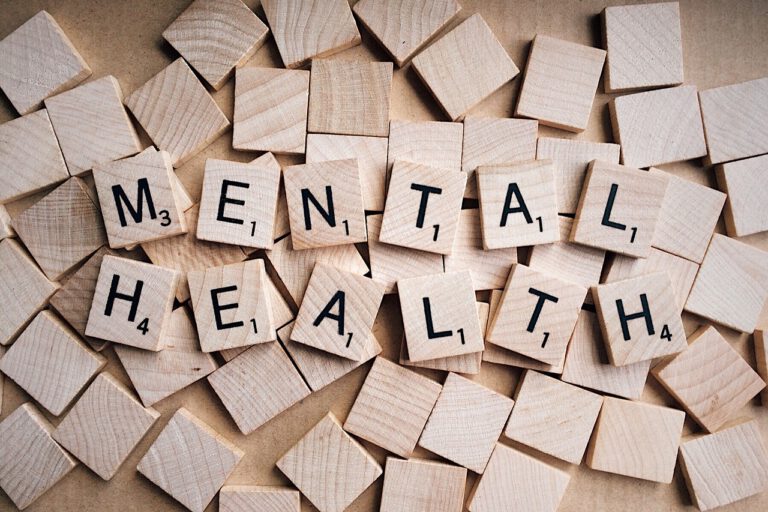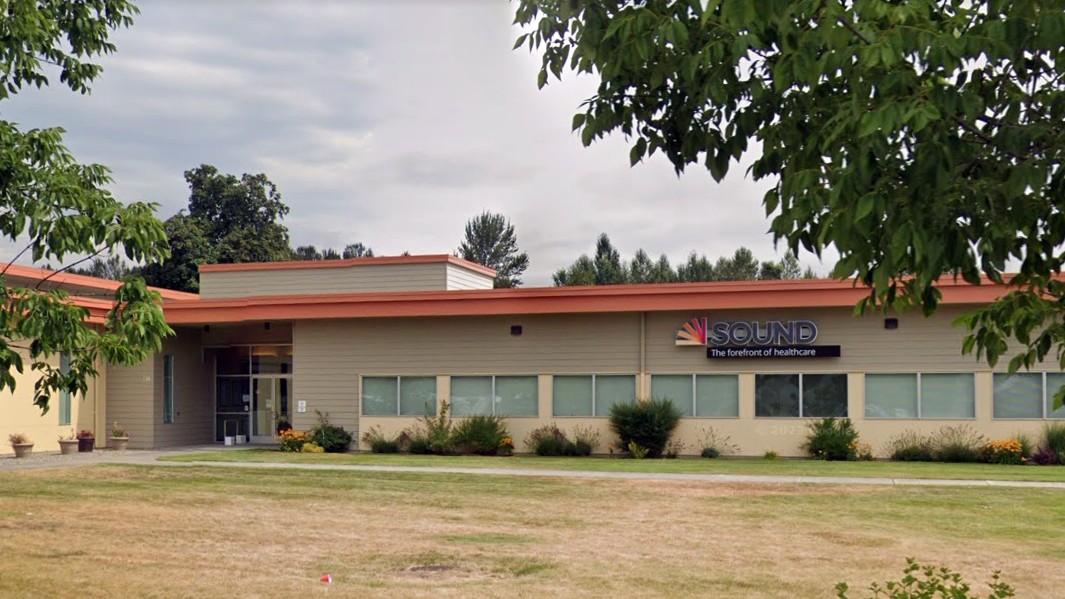The importance of mental health in the South Sound region continues to grow as individuals seek effective strategies to address stress, anxiety, and various mental health challenges. Covering cities such as Tacoma, Olympia, and their surrounding communities, the South Sound area provides a wide array of resources and support systems for mental health care. By understanding the significance of mental health and the available options, residents can significantly enhance their quality of life.
The South Sound region is home to a diverse population with unique mental health needs that span across all age groups, from children and adolescents to adults and seniors. By fostering awareness and ensuring access to quality care, the community can work together to establish a more supportive and healthier environment for everyone.
In this comprehensive guide, we will delve into various aspects of mental health in South Sound, including available resources, treatment options, and strategies for promoting well-being. Whether you're seeking information for yourself or a loved one, this article aims to provide valuable insights into maintaining and improving mental health in the South Sound area.
Read also:Exploring The Mystique Of The October 2023 Full Moon A Celestial Journey
Table of Contents
- Understanding South Sound Mental Health
- Key Resources for Mental Health in South Sound
- Exploring Treatment Options for Mental Health
- Prevention Strategies for Mental Health Challenges
- Community Support for South Sound Residents
- Addressing Mental Health for Children and Adolescents
- Mental Health Considerations for Seniors in South Sound
- Overcoming Stigma Around Mental Health
- Promoting Mental Wellness in Daily Life
- The Future of Mental Health Care in South Sound
Understanding South Sound Mental Health
Mental health in the South Sound region is a complex issue that impacts individuals from all backgrounds. With the region's growing and diverse population, it is essential to adopt a comprehensive approach to mental health care. By addressing the unique needs of each community, mental health professionals can offer targeted support and resources.
Common Challenges in South Sound
Among the most prevalent mental health challenges in the South Sound are anxiety, depression, and trauma-related disorders. Economic disparities, social isolation, and limited access to care further compound these issues. Understanding the underlying causes of mental health challenges is crucial for developing effective interventions.
The Importance of Mental Health Awareness
Raising awareness about mental health in the South Sound is vital for reducing stigma and encouraging individuals to seek help. Educational and outreach programs play a key role in promoting understanding and acceptance of mental health issues within the community.
Key Resources for Mental Health in South Sound
The South Sound region offers a variety of resources for individuals in need of mental health support. These resources include counseling services, support groups, and educational programs tailored to meet the needs of diverse populations.
Local Mental Health Organizations
- Compass Health: Provides comprehensive mental health and substance use services.
- Sound Mental Health: Offers therapy, case management, and crisis intervention services.
- Olympia Counseling Center: Specializes in individual, family, and group therapy.
Online Resources for Mental Health
In addition to local organizations, South Sound residents can access numerous online resources. Websites such as NAMI (National Alliance on Mental Illness) and Psychology Today offer valuable information and directories of mental health professionals.
Exploring Treatment Options for Mental Health
Treatment for mental health issues in the South Sound varies depending on individual needs. Common treatment options include therapy, medication, and alternative approaches like mindfulness and meditation.
Read also:Chiquis Rivera A Legacy In Entertainment
Types of Therapy
- Cognitive Behavioral Therapy (CBT): Focuses on identifying and altering negative thought patterns.
- Dialectical Behavior Therapy (DBT): Emphasizes skills for emotional regulation and interpersonal effectiveness.
- Family Therapy: Involves working with family members to improve communication and relationships.
Medication Management
For some individuals, medication may be necessary to manage symptoms of mental health disorders. Psychiatrists and healthcare providers can help determine the appropriate medication and dosage based on the individual's condition.
Prevention Strategies for Mental Health Challenges
Preventing mental health challenges involves a proactive approach to well-being. By incorporating healthy habits into daily life, individuals can reduce the risk of developing mental health issues.
Stress Management Techniques
- Engage in regular exercise to boost mood and reduce stress.
- Practice mindfulness and meditation to enhance mental clarity.
- Connect with friends and family to build a strong support network.
Healthy Lifestyle Choices
Adopting a balanced diet, ensuring adequate sleep, and avoiding substance abuse are essential components of mental health prevention. Educating individuals about the importance of these lifestyle choices can have a lasting impact on their well-being.
Community Support for South Sound Residents
The South Sound community plays a pivotal role in supporting individuals facing mental health challenges. Through collaboration and resource-sharing, community members can create a supportive environment that fosters healing and growth.
Support Groups in South Sound
- NAMI Pierce County: Offers peer-led support groups for individuals and families affected by mental illness.
- Al-Anon Family Groups: Provides support for families and friends of individuals struggling with addiction.
- Local church and community organizations: Many organizations offer counseling and support services for mental health.
Community Events and Workshops
Organizing mental health awareness events and workshops can help educate the community and reduce stigma. These events provide opportunities for individuals to connect with others and learn about available resources.
Addressing Mental Health for Children and Adolescents
Children and adolescents in the South Sound face unique mental health challenges that require specialized care. Early intervention and support can significantly improve outcomes for young individuals.
Common Mental Health Issues in Youth
- Anxiety and depression: Affect an increasing number of young people in the South Sound region.
- ADHD and behavioral disorders: Require tailored interventions and support systems.
- Trauma-related disorders: Often result from adverse childhood experiences.
Resources for Parents and Educators
Parents and educators play a critical role in supporting the mental health of children and adolescents. Resources such as parenting workshops, teacher training programs, and school-based counseling services can help address these needs.
Mental Health Considerations for Seniors in South Sound
Seniors in the South Sound region face mental health challenges related to aging, loneliness, and chronic health conditions. Providing age-appropriate care and support can improve the quality of life for older adults.
Common Mental Health Concerns for Seniors
- Depression and anxiety: Often exacerbated by social isolation and loss of loved ones.
- Cognitive decline: Includes conditions such as Alzheimer's disease and dementia.
- Grief and bereavement: Require specialized support and counseling services.
Senior-Focused Mental Health Services
Organizations such as the Aging and Disability Resource Center (ADRC) offer resources and services specifically designed for seniors. These services include counseling, support groups, and caregiver assistance programs.
Overcoming Stigma Around Mental Health
Stigma surrounding mental health remains a significant barrier to accessing care in the South Sound region. By promoting education and understanding, communities can work to eliminate this stigma and encourage individuals to seek help.
Education and Awareness Campaigns
Launching campaigns focused on mental health education and awareness can help reduce stigma. These campaigns should emphasize the importance of seeking help and highlight the positive outcomes of treatment.
Encouraging Open Dialogue
Encouraging open and honest conversations about mental health can foster a more supportive environment. By sharing personal stories and experiences, individuals can help others feel more comfortable discussing their own challenges.
Promoting Mental Wellness in Daily Life
Practicing mental wellness in daily life involves incorporating habits and routines that support mental health. By prioritizing self-care and mindfulness, individuals can maintain a balanced and fulfilling life.
Self-Care Practices
- Engage in activities that bring joy and relaxation, such as reading or gardening.
- Set boundaries to protect mental energy and avoid burnout.
- Practice gratitude and focus on positive aspects of life.
Mindfulness and Meditation
Mindfulness and meditation practices can significantly improve mental well-being. By dedicating time each day to these practices, individuals can cultivate greater awareness and emotional resilience.
The Future of Mental Health Care in South Sound
The future of mental health care in the South Sound region looks promising, with advancements in technology and increased awareness driving innovation in treatment and support. By embracing these changes, communities can continue to improve access to care and promote overall well-being.
Technology in Mental Health
Telehealth services and digital therapy platforms are becoming increasingly popular, providing convenient and accessible options for mental health care. These technologies can help bridge gaps in care and reach individuals in underserved areas.
Innovations in Treatment
Research into new treatment methods, such as virtual reality therapy and brain stimulation techniques, offers hope for improved outcomes in mental health care. As these innovations continue to evolve, they have the potential to transform the field of mental health.
Conclusion
Maintaining and improving mental health in the South Sound region requires a collaborative effort from individuals, communities, and healthcare providers. By understanding the challenges and resources available, residents can take proactive steps toward enhancing their well-being. We invite you to share this article with others and explore additional resources on our website. Together, we can create a healthier, more supportive environment for everyone in the South Sound community.


